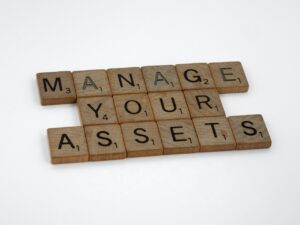Dividend Yield and what it means

Written by R.. A. Stewart
A commonly used term in the share market is “dividend yield,” but what does this term actually mean? Some novice investors will be asking themselves but are too afraid to ask others for fear of revealing their ignorance.
The dividend yield is a stock’s annual dividend payments to shareholders as a percentage of the stock’s current price. This figure is often used as a guide to a stock’s future income based on what is paid for the stock.
An example would be, if a stock sells for $10 per share and the company’s annual dividend is 50 cents per share, the dividend yield is 50 cents per share. The dividend yield is 5%. The formula for working this out is annualized dividend divided by share price equals yield. In this case, 0.50 cents divided by $10 equals 5%.
A stock’s dividend can change over a period of time. It may be due to the natural volatility of the markets or changes in the yield by the issuing company. The yield is not fixed and can be changed.
The dividend yield shown on some websites may not be accurate because it has not been updated. One week can be a long time in the markets.
To calculate the annual dividend paid out by a particular company per year you need to multiply the amount of a single payment by the amount of payments.
Keep in mind that whatever yield a company pays out, it is not a guarantee that they will continue to pay out at the same rate in the future. The old adage “Past performance is no guarantee of the future” rings true.
It is important to note that a higher yield does not on its own make a great investment. If the company is struggling then there is a risk that they may not pay a dividend to its investors.
The capital gain of a stock is the other main factor in a stock’s performance. Investors who purchase a stock for the long term are often purchasing for capital gains and this has proved successful.
The high dividend yield may be high due to the falling stock price; otherwise known as a “Dividend trap”. There is a good chance that dividends will be cut in such circumstances.
One retired couple I know uses the dividend payouts to pay for their health insurance. If you are in this position then choosing stocks with a high dividend yield may be the way to go. It is important to diversify and choose a wide range of companies to invest in.
If you do not need the income from the dividends then reinvesting is a good option. It will help to increase the value of your portfolio.
About this article
The information in this article is based on the writer’s experience and may not be applicable to your personal circumstances, therefore discretion is advised. You may use this article as content for your blog, website or ebook.
Www.robertastewart.com
Investing with Sharesies
Investing with Sharesies is an accessible and straightforward way to invest in the stock market, you can get started on your investment journey and start building your wealth. However, before making any investment decisions, it is essential to do your research and seek professional advice if necessary.
Disclaimer: I may earn a small commission if you sign up with Sharesies.

















